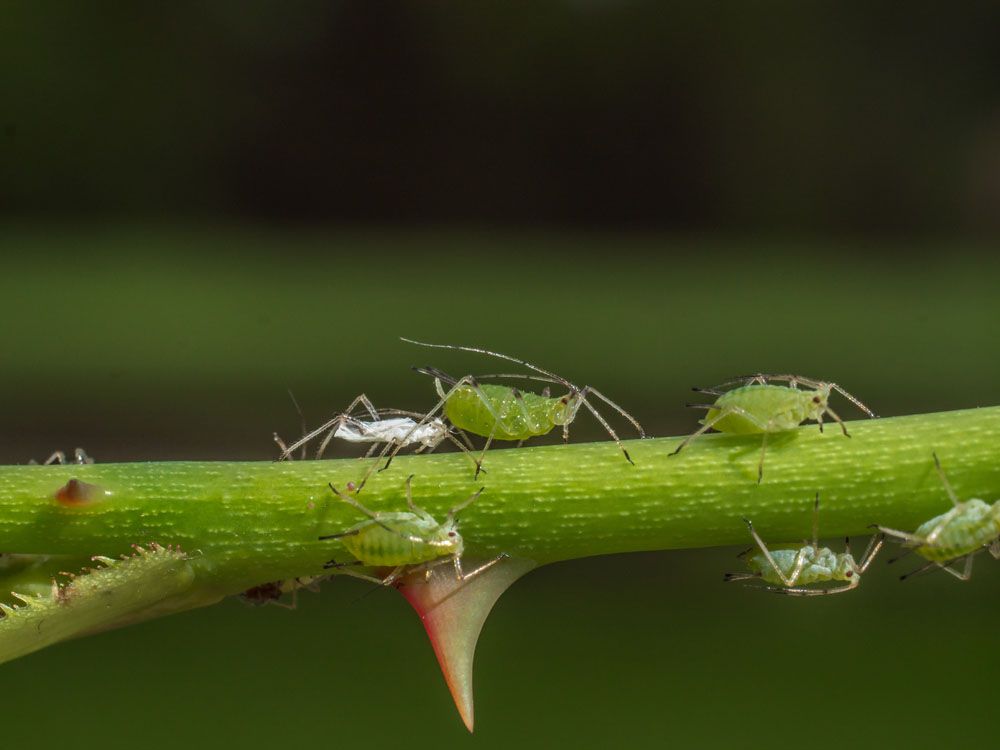
Rose Aphids
Rose Aphids
Meta Description: If your rose plants are facing the problem of rose aphids, read out this guide to learn what are rose aphids? How to identify them and how to get rid of rose aphids?
You are paying a visit to your rose garden and see the beautiful blooming flowers dancing in the cool breeze, but suddenly you see something is not going right with your lovely roses. You get close to a flower and see small insects, typically of pink or green in color, crawling on the plants and sucking the sap. So what are those mini creatures?
Let me tell you; these are aphids who love to feed on the sap of rose plants. You have to get rid of them because they weaken your plant very much, and the plant also becomes susceptible to mold attack. So, if you are also having an aphid attack on your roses, read out this article to learn what rose aphids are, how to identify them, what are their symptoms of rose aphids and how to get rid of them.
Identification of Rose Aphids:
There are several species of roses that can attack roses, but the main specie that usually attacks is Macrosiphum rosae (Rose Aphid). These are sap-sucking insects, also known as greenflies or blackflies. These are tiny insects of pear shape ranging from 2-4 mm in length and have many different colors like yellow, black, green, pink, and orange. But the rose aphids usually have pink or green colors. They can not crawl much owing to their tiny legs; therefore, you will see their clusters piled up on a stem. They reproduce eggs very rapidly; that’s why they can increase their population at a quick pace. They also lay eggs in the fall, but due to unfavorable conditions, they overwinter in eggs and hatch in the spring. On a close examination, you will see a pipe-like sucking structure on their mouth which they use to pierce the plant tissue and suck the sap. Their targets are usually new soft buds and leaves as they are juicier and softer.
Nature of Damage:
Imagine if something is sucking your blood continuously, then how will you feel, or what will be the results? Your body will become weak day by day and prone to many other diseases. The same goes for the plants when aphids suck their sap. And it’s not about one, two, or three aphids; hundreds of aphids attack on a plant, reproduce quickly and suck the sap to fulfill their nutritional requirements. They suck so much sap from the new buds that they fail to develop into blossoms and suck the life out of the leaves that they wilt as a result. That is the only source of nutrition aphids have; therefore, they drink a lot of sap out of the plant to survive. As the plant sap contains a lot of sugar, aphids don’t digest all the sugar and excrete much of that on the plant surface that appears in the form of honeydew. This honeydew attracts many fungal spores causing a disease called sooty mold that spreads to the whole plant wherever the honeydew is present.
How to Manage Rose Aphids:
A gentle shaking of the branch is quite useful in falling the aphids off the plant. When they fall on the ground, they are a good meal for the other insects.
Another method is using the force of hose water to knock down the aphids. Don’t spray with too much force that it defoliates the plant. Just as strong as to knock down the aphids.
Use slow nitrogen releasing fertilizers as aphids are the big lovers of nitrogen and reproduce very rapidly.
Use garden-friendly insects like lacewings and lady beetles. They help in controlling the aphids by eating them.
Use neem oil or insecticides containing Acephate, Diazinone, and Daconil as active ingredients. Do read the given instruction to use each insecticide.
